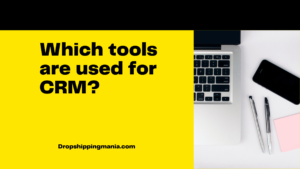CRM in Amazon
Amazon is one of the world’s largest online marketplaces. They offer a wide variety of products and services, and they have a huge customer base. So, it’s no surprise that they also have a robust CRM system. In this blog post, we will explore how Amazon uses CRM to keep their customers happy. We will also look at some of the features of their CRM system and how you can use them to improve your own business.

What CRM does Amazon use?
There are many CRM software programs on the market today. So, which one does Amazon use? The answer may surprise you.
Amazon actually uses a custom-built CRM system. This makes sense when you consider the company’s size and scale. They have a lot of data to manage and they need a system that can handle it all.
The Amazon CRM system is designed to track customer interactions, fulfill orders, and provide customer support. It also helps the company upsell and cross-sell products. In other words, it does everything a typical CRM system does.
The big difference is that Amazon’s CRM system is integrated with their other systems, such as their financial and inventory management systems. This gives them a real-time view of their customers and their needs.
Overall, the Amazon CRM system is a powerful tool that helps the company run smoothly and efficiently.
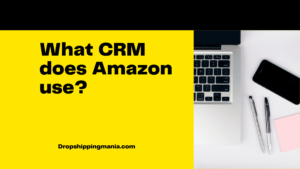
What are the 3 types of CRM?
The three types of this systems are operational, analytical, and collaborative. Operational systems are designed to manage and automate customer-facing processes such as sales, marketing, and customer service. Analytical CRM systems provide decision makers with insights about customer behavior and enable them to track progress towards business goals. Collaborative CRM systems help organizations work together to manage customer relationships.
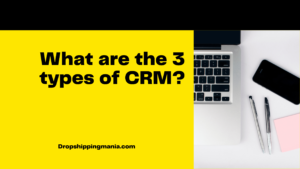
Why is CRM important to Amazon?
There are many reasons why it is important to Amazon. One reason is that it helps them keep track of their customer base and makes it easy for them to offer personalized recommendations to those customers. Additionally, It allows Amazon to maintain a high level of customer satisfaction by providing timely support and efficient order management. Furthermore, CRM helps Amazon identify new sales opportunities and cross-selling opportunities. Finally, enables Amazon to better understand their customers’ needs and preferences, which allows them to provide a more customized shopping experience.
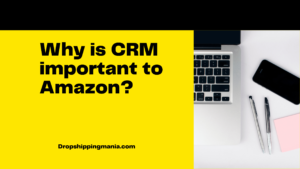
What is CRM example?
CRM, or customer relationship management, is a system for managing customer data and interactions. Amazon CRM is a cloud-based CRM system that helps businesses manage their customer relationships. It provides features such as contact management, sales force automation, and marketing automation.
What are the 4 pillars of CRM?
CRM, or customer relationship management, is a business strategy designed to improve customer satisfaction and loyalty. The four pillars of CRM are:
F Customer service: This pillar focuses on providing excellent customer service in order to increase customer satisfaction and loyalty.
2. Sales: This pillar focuses on increasing sales and revenue by improving the sales process and converting more leads into customers.
3. Marketing: This pillar focuses on creating and executing marketing campaigns that attract and retain customers.
4. Data management: This pillar focuses on collecting, storing, and analyzing customer data to better understand their needs and preferences.
What are the 6 CRM skills?
The 6 CRM skills are:
1. Data entry
2. Data analysis
3. Report generation
4. Presentation skills
5. Customer service
6. Sales
What is the main purpose of CRM?
CRM, or customer relationship management, is a software tool that helps tkeep track of and manage their customer data. systems are designed to help businesses grow and maintain their customer base by providing a central repository for customer information, automating customer-facing processes, and providing insight into customer behavior.
CRM systems can help businesses in a number of ways, but the main purpose of is to help businesses manage and grow their customer relationships. By tracking and managing customer data, businesses can better understand their customers’ needs and preferences, which allows them to provide better service and support. Additionally, by automating customer-facing processes, businesses can free up time for employees to focus on other tasks that contribute to the bottom line. Ultimately, CRM systems help businesses improve their bottom line by helping them better manage and grow their most important asset: their customers.
What type of platform is CRM?
Its platforms come in a variety of shapes and sizes. The most popular CRMs are cloud-based, meaning they’re hosted on the internet and accessible from anywhere. Other CRMs are self-hosted, meaning they’re installed on your company’s servers.
The benefits of a cloud-based CRM are that it’s always up-to-date, scalable, and accessible from anywhere. The downside is that you’re reliant on your internet connection and you don’t have as much control over your data.
Self-hosted CRMs offer more control over your data and customization options, but they can be more expensive and harder to keep up-to-date.
What are the 5 CRM success factors?
There are five key success factors for any its implementation, whether in Amazon or elsewhere:
1. Defining the business problem or opportunity that this system will address
2. Getting buy-in and commitment from senior management and key partner
3. Carefully selecting the right CRM software and vendors
4. Adequately preparing and training employees on using the system
5. Monitoring and CALresults to ensure ROI
What is CRM full form?
Its full form is Customer Relationship Management. It is a system that helps work manage their customer relationships. Moreover it can used to track customer contact information, sales data, and activity history. In addition this systems can help businesses automate tasks such as marketing and customer service.
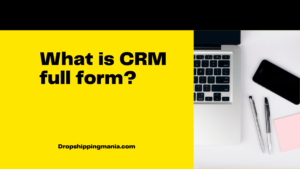
Which tools are used for CRM?
Lastly, There are a number of different tools that can used for t in Amazon. Moreover some of the most popular CRM tools include Salesforce, HubSpot, and Zoho. These tools can all be used to manage customer data, track customer reaction, and automate tasks such as lead generation.
If you need information about FBA then visit this link
AMAZON FBA
